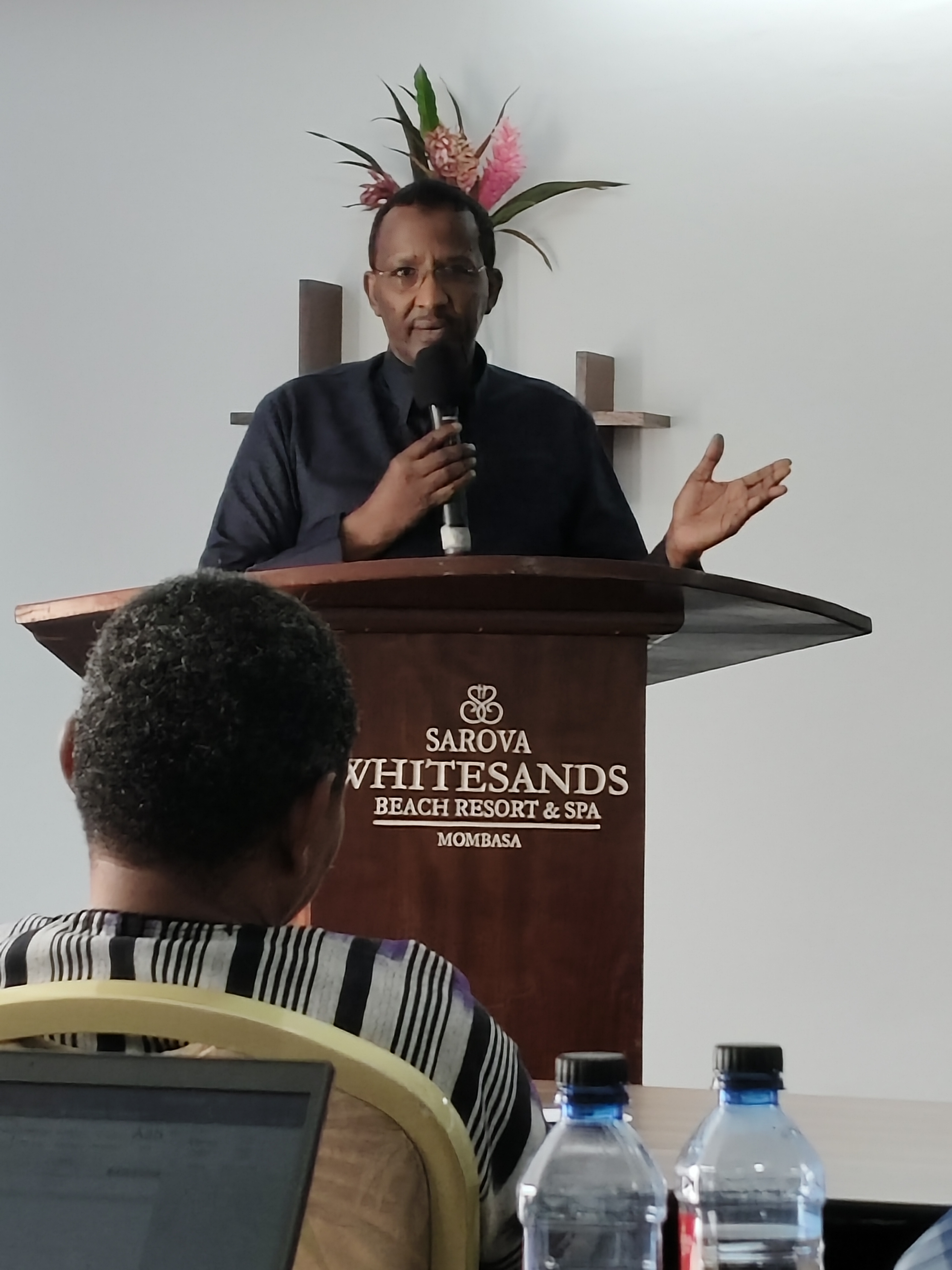
 Ipoa chairperson Isaac Hassan addressing journalists in Bamburi in Mombasa during a training forum
Ipoa chairperson Isaac Hassan addressing journalists in Bamburi in Mombasa during a training forumChairperson Isaac Hassan said the authority has only 77 investigators and a workforce of 284, against a police force of 125,000.
Though the authority is independent, it still depends on the Interior ministry to approve it's funding before the budget is sent to the national assembly.
This, Hassan said, coupled with poor co-operation by the National Police Service (NPS), hampers efforts to conclude investigations to enable prosecution of errant officers.
"We need the Occurrence Book (OB), whether manual or digital, and the arms register among other things for our investigations. Numerous times, our investigators encounter blocks," he said.
"Luckily, we currently have a good Inspector General who's more responsive to Ipoa because there's one who called our investigators busy bodies," he added.
He cited 184 files from the protests that broke out following the 2022 general elections and the Gen Z protests that erupted last year, that he said are still waiting the approval of the Office of the Director of Public Prosecutions (ODPP).
He said the authority is mandate to investigate complaints from members of the public while others are filed by police officers against their counterparts and that some are picked from the media, especially those of high public interest.
The authority, Hassan noted, has a workforce that is highly professional with some of the investigators being retired officers from the Directorate of Criminal Investigations (DCI), the Internal Audit Affairs, the military police and National Intelligence Service.
"What we're lacking is personnel. We're really under-resourced and have been trying to lobby for more funding from the government to recruit more people who can receive complaints, investigators and lawyers. Ipoa needs a good team of lawyers," he said.
He revealed that Ipoa's approved staff is 1,300, out of which 490 should be investigators.
Hassan termed as epidemic the low level of confidence in public institutions, particularly the cynisn, criticism and apathy that has resulted in escalating levels of hatespeech and use of harsh language on social media that eventually turn into violence during protests.
The chairperson noted the Internal Affairs Unit has better access to the police force as opposed to Ipoa that often has to contend with the 'blue code of silence' where police officers protect each other from investigations.
"We've been trying hard to assert our independence and ensure victims get justice and have been doing a number of engagements with state and non-state actors in the regions".
Hassan was speaking during a journalists training forum in Bamburi, Mombasa county, that was facilitated by Missing Voices, a coalition of civil society organisations that champion against extrajudicial killings and enforced disappearances.
The organisations include International Justice Mission (IJM), Amnesty International Kenya, Haki Africa, Heinrich Böll Stiftung, Kenya Human Rights Commission (KHRC), Kituo Cha Sheria, International Commission of Jurists Kenya (ICJ Kenya) and Independent Medico‑Legal Unit (IMLU).
Others include Muslims for Human Rights (MUHURI), National Coalition of Human Rights Defenders Kenya, Peace Brigades International Kenya, Protection International Kenya and Social Justice Working Centres Group.
Internal Affairs Unit director Boniface Maingi insisted that the working relationship between NPS and Ipoa has been good, and that some files are handed over to the authority for investigations despite being opened by the unit.
"In cases involving use of firearms and death of protestors, I may open the files but the work will be done by IPOA".
Similar complaints were made by the Witness Protection Agency that said the funds allocated to it are not enough to facilitate the services it offers.
Director Nelson Njiri noted that taking care of a basic family with a man, woman and two children costs the agency about Sh5m million annually and that the government funds 99 per cent of its operations.
But he noted that the agency has helped many court cases conclude successfully by shielding the witnesses even though it does not publicly announce it's successes.
He, however, added that Kenya is one of the few countries with a functional witnesses protection agency and that a few others are in the process of establishing one.
"Last week, I was in Namibia trying to convince the state to establish one because we can't operate alone. Some witnesses can't be protected in the country and we need collaborators in other countries".














